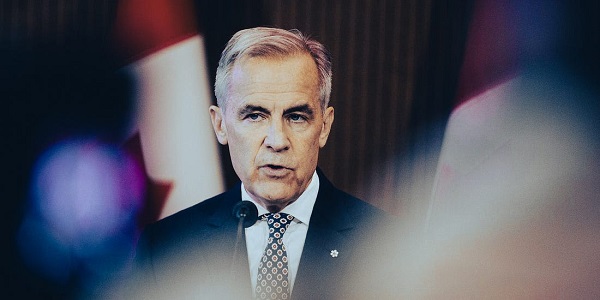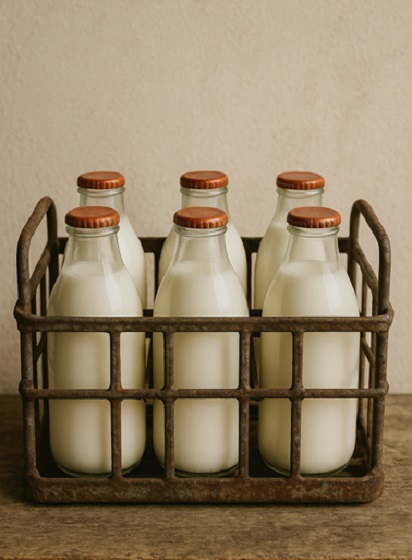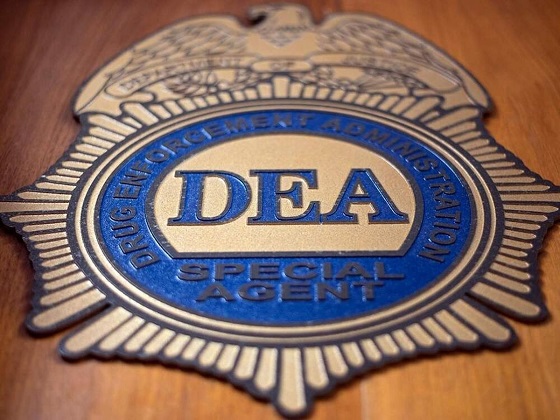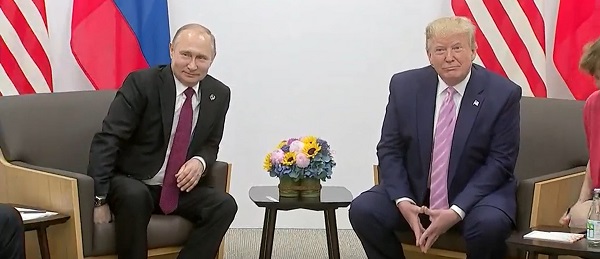National
Democracy Watch Blows the Whistle on Carney’s Ethics Sham

 Dan Knight
Dan Knight
Watchdog Group Exposes “Loophole-Filled, Unethical Smokescreens” in Prime Minister’s Blind Trust and Conflict Screen, Calls for Full Divestment
So here’s something the media doesn’t want to talk about because it shatters the entire illusion they’ve built around the man they now call Prime Minister: Mark Carney. The technocratic savior, the former banker with all the right globalist credentials, the guy who jets between Davos and Ottawa with a PowerPoint and a carbon tax. And yet, today buried under polite headlines and careful euphemisms a watchdog group in Canada finally said what should’ve been obvious to anyone paying attention.
Mark Carney’s ethics screen and his so-called “blind trust” are scams. Period.
That’s not hyperbole. That’s from Democracy Watch, one of the last remaining ethics organizations in the country that hasn’t been swallowed by the federal funding machine or bullied into silence by the PMO. In a statement released this week, they laid out—point by point—how Carney’s financial arrangement is not just flawed, but a “loophole-filled, unethical smokescreen.” Their words. And they’re right.
Let’s go through it.
Carney, who now controls the federal government, holds investments in over 550 companies. Five hundred and fifty. That includes stock options in Brookfield Asset Management, where he used to be vice-chair, and a major stake in Stripe, the Silicon Valley payment processor. Yet we’re told, by government and press alike, that all is well because he’s placed these assets in a “blind trust.” Sounds reassuring, doesn’t it?
But here’s the problem. It’s not blind. Not even close.
According to Democracy Watch, Carney knows exactly what’s in that trust. Why? Because he put the assets in himself, he chose his own trustee, and he was allowed to instruct the trustee not to sell anything. Read that again. He told the trustee: keep my investments intact. And that trustee? Free to give him updates.
So, what part of this is blind?
The answer is: none of it. And it gets worse. Carney holds stock options in Brookfield Corporation and Brookfield Asset Management—options that he cannot sell for years. Which means even if he wanted to claim ignorance, he can’t. He knows he owns them. Everyone knows he owns them. And now he’s making policy decisions that shape the very industries those companies operate in—climate policy, tech investment, financial regulation, you name it.
Let’s call this what it is. It’s a conflict of interest so massive it makes Justin Trudeau’s WE Charity scandal look like a lemonade stand. And yet, this isn’t even the worst part.
Carney’s ethics screen, the list of 103 companies he’s supposedly recused from dealing with—doesn’t cover the full 550+. It only applies to a fraction. But even among those 103, the federal Conflict of Interest Act contains a loophole so big you could drive a solar-powered Brookfield wind turbine through it.
It’s called the “general application” exemption. Under this clause, public office holders like, say, the Prime Minister; can fully participate in decisions that impact industries or economic sectors as a whole, so long as those decisions aren’t “targeted” at a specific company. So if Carney signs off on a $10 billion green tech fund that pumps value into Brookfield’s renewables portfolio? That’s legal. Because it’s general.
In fact, according to Democracy Watch, that loophole applies to “99% of the decisions” cabinet ministers make. So despite having personal investments tied to hundreds of companies, Carney can still sit in meetings, shape policy, and direct subsidies that increase the value of his trust, without technically breaking the rules.
Lets call this what it is, this is legalized insider dealing.
And remember this: every time a public official recuses themselves, they’re supposed to make a public declaration. That’s the law under Section 25(1) of the Conflict of Interest Act. But former Ethics Commissioner Mary Dawson—remember her?—helped invent a system of “ethics screens” that lets politicians bypass that requirement.
Set up a screen, tell the public you’re recused from everything, then quietly participate in decisions behind closed doors. No disclosure. No accountability. No paper trail.
Justice Parker, way back in 1987, warned us about this. In his landmark commission on conflicts of interest, he recommended banning blind trusts outright and requiring all top officials to sell their private investments. Why? Because it’s the only way to guarantee integrity. You cannot serve the public while holding shares in private companies that rise or fall based on your decisions. Period.
And yet here we are. The new Prime Minister. Over 550 investments. A fake blind trust. A self-policed ethics screen. And a legal loophole so wide open, it makes lobbying look quaint.
Now here’s the part no one will say out loud: this system is designed to be abused. It’s not broken. It’s working exactly as intended. The people writing the rules are the same ones benefiting from them. And Carney? He’s not breaking norms—he is the norm.
Democracy Watch is right. The only solution is for Carney to sell his investments, including his Brookfield stock options. End the charade. Choose public service over private profit. But he won’t. And the reason is simple: the swamp doesn’t drain itself.
This isn’t transparency. This isn’t accountability. This is how the ruling class launders power through legal technicalities, and then has the audacity to lecture you about ethics.
And if you still believe that a man who used to run a trillion-dollar fund, who sits on hundreds of corporate stakes, who appointed his own ethics babysitter and told them not to sell anything—that this man is governing in your interest?
Then I’ve got a “blind” trust to sell you.
Subscribe to The Opposition with Dan Knight .
For the full experience, upgrade your subscription.
Business
It’s Time To End Canada’s Protectionist Supply Management Regime

From the Frontier Centre for Public Policy
Senior Fellow Brian Giesbrecht says it’s time to stop coddling millionaire dairy barons. Supply management drives up grocery bills, blocks trade and makes Canada a global joke. Australia fixed it—we can too.
Canadians are paying the price for political cowardice
Canada’s outdated supply management system forces the average Canadian family to spend $500 a year to protect a small group of wealthy dairy producers, most of them millionaires. This protectionist regime enriches a few at the expense of many, drives up food prices and undermines Canada’s credibility in trade negotiations. It no longer fits the times, and it has to go.
Let’s be clear: this isn’t about attacking dairy farmers. Most are hardworking, conscientious people who’ve built their lives around a system they didn’t create. They rise early, work long hours, rarely take holidays and deserve fair compensation if the system is dismantled. But good intentions don’t justify bad policy.
Under supply management, the government tightly controls how much dairy, poultry and eggs Canadian farmers can produce and imposes steep tariffs—sometimes more than 400 per cent—on imported products to limit competition. The result is artificially high prices, limited consumer choice and retaliatory tariffs from other countries.
This system, once designed to protect small family farms, is now dominated by fewer than 10,000 large operations, many worth millions. It no longer serves its original purpose, yet it remains in place because of political cowardice. Pierre Poilievre and Mark Carney both know the system is flawed but won’t challenge it. Why? Because it’s popular in Quebec, a province with significant electoral influence. No party wants to risk alienating those voters.
Australia and New Zealand once faced similar challenges. They phased out their systems, fairly compensated farmers through levies and built globally competitive dairy sectors. We can too. Trump’s return to power may force our hand, but it also gives us an opportunity to act on what we should have done long ago.
Even without outside pressure, the inefficiency is clear. Every year, billions of litres of milk are dumped when quotas are exceeded. At the same time, Canadian companies like Saputo are forced to relocate abroad to reach global markets. Our artisan cheese producers are trapped in a small domestic economy while foreign markets block our exports in retaliation for our own protectionism.
The hypocrisy is glaring. We call for free trade but defend a system that imposes up to 400 per cent tariffs on imports. Our global partners are right to scoff.
Trump did. In a social media post, he wrote: “Canada is a very difficult country to TRADE with, including the fact that they have charged our Farmers as much as 400 per cent Tariffs, for years, on Dairy Products.” And in his July 10 letter announcing 35 per cent tariffs on Canadian goods, he added: “Canada charges extraordinary Tariffs to our Dairy Farmers—up to 400 per cent—and that is even assuming our Dairy Farmers even have access to sell their products to the people of Canada.”
This isn’t just an American objection. High-quality dairy from France and Germany can’t be sold in Canada because of our import barriers. Their governments respond by blocking our dairy exports. Canada loses jobs, investment and credibility.
Some defenders claim foreign dairy is unsafe. But countries like France and Germany have food safety standards as strict as ours. And Canada already has legal mechanisms to block substandard imports. We don’t need tariffs for that.
Former Liberal MP Martha Hall Findlay said it plainly: supply management is a dead end. So did Maxime Bernier, who made it a central issue during his bid for the Conservative leadership. The dairy lobby made sure he didn’t win. And we’re still stuck.
Now, all parties have voted to exclude supply management from current trade talks. We are entering negotiations that demand fair treatment while protecting one of the most unfair systems in the developed world. It’s a national embarrassment.
But this can change. A phased buyout funded by a modest, temporary levy—not taxpayer dollars—could end supply management and open our dairy sector to global opportunity. Australia and New Zealand proved it works. Their citizens don’t pay $10 for butter or yogurt. Neither should we.
It’s time to stop protecting the past. Dismantle the system. Free our producers. Lower grocery bills. Restore our credibility.
Maxime Bernier saw it in 2017. Trump is saying it again in 2025.
This time, we’d better listen.
Brian Giesbrecht is a retired judge and senior fellow at the Frontier Centre for Public Policy.
Fraser Institute
Democracy waning in Canada due to federal policies

From the Fraser Institute
By Lydia Miljan
In How Democracies Die, Harvard political scientists Steven Levitsky and Daniel Ziblatt argue that while some democracies collapse due to external threats, many more self-destruct from within. Democratic backsliding often occurs not through dramatic coups but through the gradual erosion of institutions by elected leaders—presidents or prime ministers—who subvert the very system that brought them to power. Sometimes this process is swift, as in Germany in 1933, but more often it unfolds slowly and almost imperceptibly.
The book was written during Donald Trump’s first presidential term, when the authors expressed concern about his disregard for democratic norms. Drawing on Juan Linz’s 1978 work The Breakdown of Democratic Regimes, Levitsky and Ziblatt identified several warning signs of democratic decline in Trump’s leadership: rejection of democratic rules, denial of the legitimacy of political opponents, tolerance or encouragement of violence, and a willingness to restrict dissent including criticism from the media.
While Trump is an easy target for such critiques, Levitsky and Ziblatt’s broader thesis is that no democracy is immune to these threats. Could Canada be at risk of democratic decline? In light of developments over the past decade, perhaps.
Consider, for example, the state of free speech and government criticism. The previous Liberal government under Justin Trudeau was notably effective at cultivating a favourable media environment. Following the 2015 election, the media enjoyed a prolonged honeymoon period, often focusing on the prime minister’s image and “sunny ways.” After the 2019 election, which resulted in a minority government, the strategy shifted toward direct financial support. Citing pandemic-related revenue losses, the government introduced “temporary” subsidies for media organizations. These programs have since become permanent and costly, with $325 million allocated for 2024/25. During the 2025 election campaign, Mark Carney pledged to increase this by an additional $150 million.
Beyond the sheer scale of these subsidies, there’s growing concern that legacy media outlets—now financially dependent on government support—may struggle to maintain objectivity, particularly during national elections. This dependency risks undermining the media’s role as a watchdog of democracy.
Second, on April 27, 2023, the Trudeau government passed Bill C-11, an update to the Broadcasting Act that extends CRTC regulation to digital content. While individual social media users and podcasters are technically exempt, the law allows the CRTC to regulate platforms that host content from traditional broadcasters and streaming services—raising concerns about indirect censorship. This move further restricted freedom of speech in Canada.
Third, the government’s invocation of the Emergencies Act to end the Freedom Convoy protest in Ottawa was ruled unconstitutional by Federal Court Justice Richard Mosley who found that the government had not met the legal threshold for such extraordinary powers. The same day of the ruling the government announced it would appeal the 200-page decision, doubling down on its justification for invoking the Act.
In addition to these concerns, federal government program spending has grown significantly—from 12.8 per cent of GDP in 2014/15 to a projected 16.2 per cent in 2023/24—indicating that the government is consuming an increasing share of the country’s resources.
Finally, Bill C-5, the One Canadian Economy Act, which became law on June 26, grants the federal cabinet—and effectively the prime minister—the power to override existing laws and regulations for projects deemed in the “national interest.” The bill’s vague language leaves the definition of “national interest” open to broad interpretation, giving the executive branch unprecedented authority to micromanage major projects.
Individually, these developments may appear justifiable or benign. Taken together, they suggest a troubling pattern—a gradual erosion of democratic norms and institutions in Canada.
-

 Business2 days ago
Business2 days agoMark Carney’s Fiscal Fantasy Will Bankrupt Canada
-

 Opinion2 days ago
Opinion2 days agoCharity Campaigns vs. Charity Donations
-

 Alberta2 days ago
Alberta2 days agoTemporary Alberta grid limit unlikely to dampen data centre investment, analyst says
-

 Daily Caller2 days ago
Daily Caller2 days ago‘Strange Confluence Of Variables’: Mike Benz Wants Transparency Task Force To Investigate What Happened in Butler, PA
-

 Crime1 day ago
Crime1 day agoDEA Busts Canadian Narco Whose Chinese Supplier Promised to Ship 100 Kilos of Fentanyl Precursors per Month From Vancouver to Los Angeles
-

 Alberta2 days ago
Alberta2 days agoAlberta Next: Taxation
-

 Business2 days ago
Business2 days agoCarney Liberals quietly award Pfizer, Moderna nearly $400 million for new COVID shot contracts
-

 conflict1 day ago
conflict1 day agoTrump’s done waiting: 50-day ultimatum for Putin to end Ukraine war




